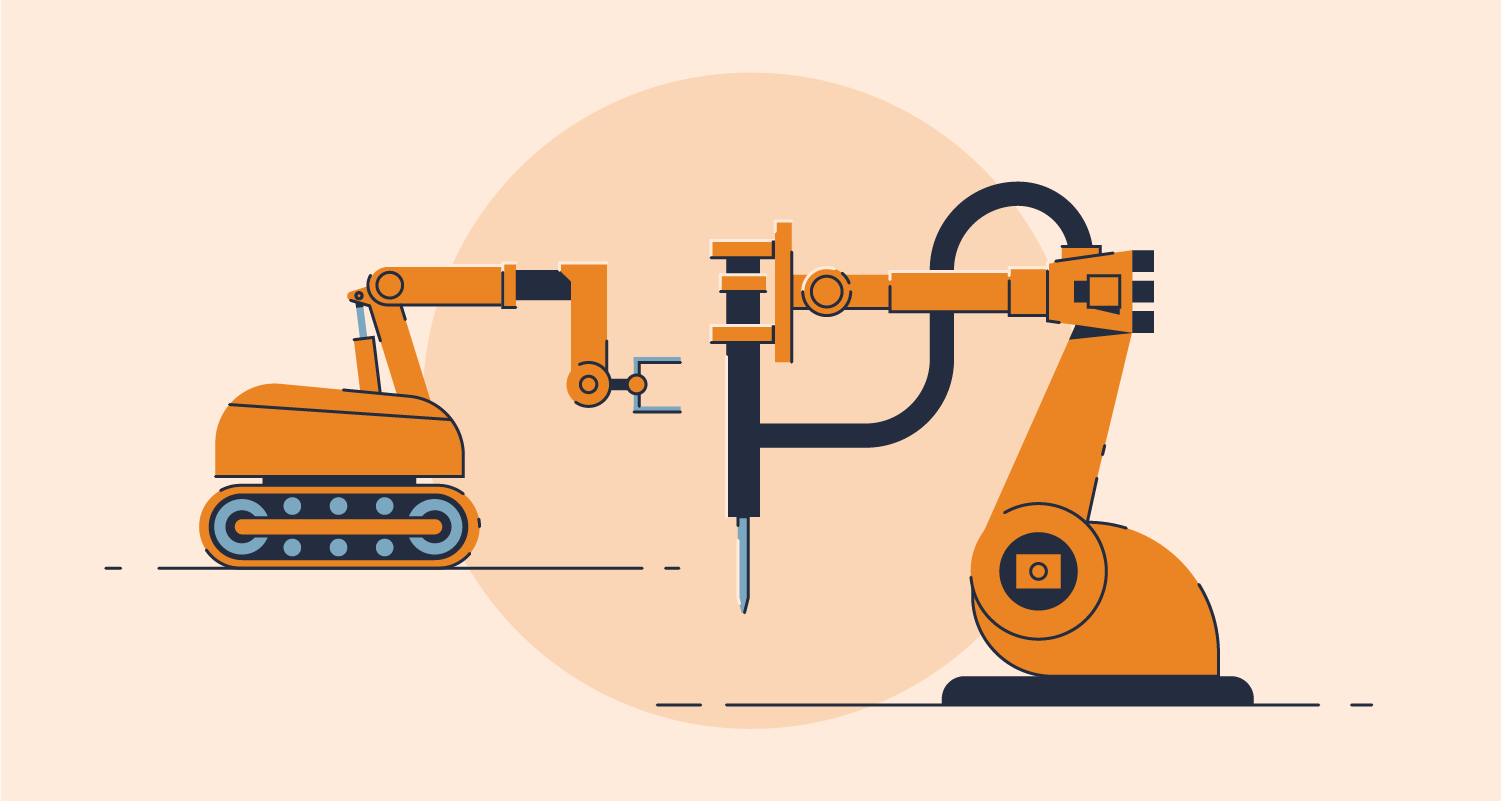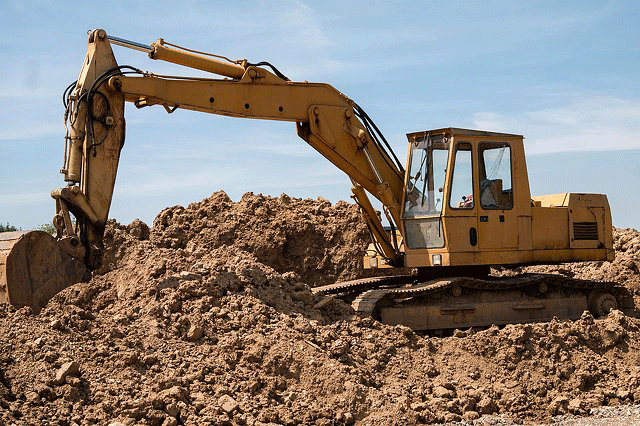Top 30 Construction Startups Shaking Up the Industry [2024]
Despite the many challenges businesses faced during the pandemic, construction startups have taken off over the past year.
New construction tech startups secured over $1.3 billion in funding in 2020 alone, and advances in artificial intelligence (AI) and other technologies are expected to boost industry profits over the next few years.
The construction industry is notoriously slow when it comes to innovation, so construction startups are taking advantage of the rising need for digitization to get the industry up to speed. In a world of rapidly advancing technology, the most successful construction startups achieve the perfect balance between developing cutting-edge technologies and leaving room for change.
Read on to discover 30 construction startups making waves in the industry, or skip to the infographic below to learn what makes them successful.
What Is a Construction Startup?
The main goal of a construction startup is to create an innovative product or idea that’s never been seen before in the industry. This typically involves identifying a common pain point, creating a new product or service to address it, and optimizing it for your audience.
Because construction startups require funding to get started, most business owners search for partners to back their projects. These partners often include other construction businesses, individual investors and venture capital funds. Startup accelerators and incubators are also popular options for new startups looking for an initial round of funding.
Table of Contents
- Construction Tech
- Sustainability
- Safety and Productivity
- Supply Chain
- Design and Planning
Construction Tech

Construction is the second least digitized industry after agriculture. To help bridge the gap, construction tech startups are developing new technologies faster than ever before.
1. Built Robotics
Built Robotics entered the market in 2016 to create fully autonomous construction vehicles controlled by AI. The company’s AI Guidance System converts existing construction equipment like dozers, excavators and compactors into autonomous robots, and their safety system is equipped with sensors and a geofence to protect people and other vehicles from harm.
The company secured $33 million in funding in 2019, and its main investors include Next47, Founders Fund and NEA.
Products and Services: Fully autonomous construction equipment
2. Branch
Branch Technology created Cellular Fabrication, a patented process for large-scale 3D printing. Their freeform polymer matrix is used to create building structures and facades and has a much lower environmental impact than traditional building materials.
Branch Technology was backed by companies like EquipmentShare and Brick & Mortar Ventures during their last round of funding, and they secured $11 million to help grow their fleet of construction 3D printers.
Products and Services: Large-scale 3D printing for construction
3. Toggle
Toggle is a New York-based company that uses robotics and automation to fabricate and assemble rebar for reinforced concrete. Their innovative technology reduces cost and increases productivity to streamline the manufacturing process, and they primarily focus on sustainable urban development.
Toggle announced earlier this year that they raised $8 million in Series A funding, which was primarily backed by Tribeca Venture Partners, Point72 Ventures and New York state, among others.
Products and Services: Robotics technology for rebar fabrication and assembly
4. Mighty Buildings
Mighty Buildings uses 3D printing, robotics and automation to create sustainable structures for the residential construction market. Their houses and modular homes are made with 3D-printed non-silicate Light Stone Material and steel, making them more durable and sustainable than traditional houses.
Mighty Buildings secured $26 million in funding in 2019 after drawing interest from investors like Evolution VC and Alumni Ventures Group.
Products and Services: 3D-printed materials for houses and modular homes
Sustainability

The construction sector is highly polluting and makes up roughly 39% of the world’s energy-related CO2 emissions. There has been a push in recent years to make the construction industry more sustainable, and construction startups are leading the way by reducing construction waste, creating eco-friendly building materials and leading the transition to renewable energy sources.
5. AMPD Energy
AMPD Energy seeks to eliminate carbon emissions and drive the transition to renewable energy on construction sites with their Ampd Entertainer. This energy storage system is fully electric, and it can power entire construction sites without the need for diesel fuel. The electric entertainer is also almost 32 times quieter than a diesel generator, making it perfect for reducing noise pollution.
AMPD Energy raised $3.7 million in investments between its founding in 2014 and 2017, and the company is currently working on expanding operations outside of Hong Kong and Singapore.
Products and Services: Zero-emissions energy storage systems for construction sites
6. Carbon Clean
Carbon Clean developed cost-effective CO2 capture technology that can be implemented at a variety of job sites. Their modular system is easier to install than traditional carbon capture systems, and its smaller size reduces site disruption during and after installation.
Carbon Clean was founded in 2009 and is continuing to innovate and expand operations around the globe.
Products and Services: Low-cost carbon capture technology
7. Converge
Converge created AI and cloud-based technologies powered by wireless sensors to make the construction process more efficient and sustainable. Their ConcreteDNA platform provides real-time strength data and predictions and helps users design more efficient and eco-friendly concrete mixes.
Converge received funding from an Innovative UK grant in 2018 to develop its software and is now backed by Cambridge Angels, ef. and Martlet.
Products and Services: AI and cloud-based technology
8. Kenoteq
Kenoteq is a Scottish startup that turns construction waste into eco-friendly bricks. Their product, called the K-Briq, comes in multiple colors and offers better insulation properties than clay bricks. Because K-Briq manufacturing doesn’t require fossil fuel-burning kilns, it produces just one-tenth of the carbon emissions of a regular brick.
Kenoteq has received over $1.7 million in grant funding from their two lead investors, Scottish Enterprise and Zero Waste Scotland.
Products and Services: Eco-friendly bricks made from construction waste
9. Basilisk Concrete
Basilisk Concrete, founded in 2015, created a line of self-healing concrete and mortar. Their products include a self-healing concrete mixing agent and a repair liquid and mortar for existing concrete. Each of these products is made with limestone-producing microorganisms that convert nutrients into limestone when exposed to oxygen. This self-healing solution extends the life of concrete, reducing the overall amount of concrete waste produced and making the material more sustainable.
Basilisk Concrete is primarily funded by SHIFT Invest, a platform that invests in startups with sustainable business models.
Products and Services: Self-healing concrete and mortar
Safety and Productivity

Like in any industry, improving safety and productivity is a top priority for construction teams. The following startups take this goal one step further by creating new systems and technologies to improve construction site safety and reduce injury rates.
10. Eave
Eave developed smart ear defenders and an online environmental noise visualization platform to protect construction workers from preventable hearing loss. Eave’s ear defenders allow users to dial down the noise around them while still letting in some environmental and conversational sound. Additionally, their software creates a visual of construction noise to make dangerous sounds easier to manage.
Pembroke VCT invested over $2.3 million in Eave to help accelerate its expansion in 2021.
Products and Services: Smart hearing protection system
11. ViAct
ViAct has become a leading platform in AI construction monitoring. The company created a construction-specific computer vision platform that uses cameras and sensors to help identify danger zones and improper safety measures on job sites.
ViAct announced earlier this year that they secured $2 million in funding and they plan to use it on research, product development and expansion.
Products and Services: AI construction monitoring system
12. Rhumbix
The Rhumbix Field Data Platform is a contractor management software that allows users to share information with team members, connect data and instantly log field information. It also provides a daily construction report that helps contractors identify safety hazards and other issues on site.
Rhumbix has secured a total of $40.8 million in funding since its founding in 2014.
Products and Services: Contractor management software
13. WorkerSense
WorkerSense created a line of wearable sensors that connect to a web platform to provide insights on productivity and worker safety. WorkerSense became the first construction wearable company to deploy contact tracing to their products during the COVID-19 pandemic in 2020.
WorkerSense built its prototype in 2017 and used funding from Dorm Room Fund to grow the business.
Products and Services: Wearable construction sensors and enterprise software
Project Management

Product management is a crucial part of the construction process, but it is often the most unorganized due to its many moving parts. To make project management run more efficiently and reduce miscommunication, the following startups have created apps, digital platforms and project management software for the construction industry.
14. Fieldwire
Since its founding in 2013, Fieldwire has earned a reputation as one of the most user-friendly construction management apps on the market. It allows users to track performance, assign project tasks, schedule reports and quickly update plans and documents.
Fieldwire’s disclosed funding reached a total of $40 million after their last round of funding in 2019.
Products and Services: Construction management app
15. Archdesk
Archdesk is a cloud-based construction management software that connects users to real-time information on any device connected to the internet. It was designed to automate as many tasks as possible and reduce time spent on managing workflows.
Archdesk landed its first client in 2016 and had 300% year-over-year growth as of 2019.
Products and Services: Cloud-based construction management software
16. BuildingConnected
BuildingConnected is a network that connects owners and builders during the pre-construction process. Their products include BuildingConnected Pro for general contractors and owners, TradeTapp for risk teams and Bid Board Pro for subcontractors. These tools simplify the bidding process and allow subcontractors to mitigate risks earlier in the process.
BuildingConnected raised $22 million in 2017 to grow its platform, and its main investors include Crosslink Capital, Lightspeed and Bee Partners.
Products and Services: Bid and task management platform for construction
17. LiveCosts
LiveCosts created a system designed to efficiently track construction budgets and financial forecasts. Their service includes a project dashboard, pricing catalog, supplier tracking and site app to easily keep track of monetary gains and losses during construction.
LiveCosts developed its software with the help of the Competitive Start Fund, and the company was able to accelerate operations during the pandemic due to the increased need for digital financial forecasts.
Products and Services: Construction cost tracking software
18. OpenSpace
OpenSpace invented an automated 360 video capture and mapping tool for job sites to help users stay organized and view their construction sites from anywhere. Its BIM Compare feature shows the site’s current conditions, and the platform’s Productivity View allows users to measure productivity and production rates.
OpenSpace announced a $55 million Series C funding round led by Alkeon Capital Management in April 2021.
Products and Services: Photo documentation and analysis tools
19. Procore
Procore’s cloud-based platform houses apps, documents and team member information in one place. It is designed to increase collaboration and manage the entire construction process from start to finish, and its analytics software turns construction data into actionable reports.
Procure postponed plans for an initial public offering when the pandemic hit in 2020, and instead raised an additional $150 million in funding.
Products and Services: Construction management platform
Supply Chain

The construction industry steadily expanded during the first half of 2021, leading to an increase in demand for materials and equipment. Unfortunately, this growth has put a strain on the supply chain and made disruptions more common. To combat this problem, construction startups are coming up with new solutions to streamline the process and increase its resiliency.
20. Billd
Billd provides a payment solution for suppliers and contractors that pays suppliers upfront, then offers contractors a more flexible repayment plan. The system offers 120-day terms to eliminate the problem of contractors having to pay for materials before getting paid for the project.
Billd secured $60 million in funding from LL funds in 2019 to launch its new payment method.
Products and Services: Flexible construction payment platform
21. BigRentz
Founded in 2012, BigRentz is the nation’s largest equipment rental network. With over 12,000 partner locations across the United States, BigRentz seeks to reduce costs and simplify the construction rental process. The BigRentz online marketplace makes it easy for businesses to source and schedule rental delivery straight to the work site to save them time and money on their projects.
In 2020, BigRentz announced it closed $15 million in private funding and used it to expand its rental options. More recently, in 2024, BigRentz announced a partnership with Billd to offer customers access to financing options.
Products and Services: Online heavy equipment rental marketplace
22. Infra.Market
Infra.Market entered the market in 2017 with the goal of using technology to help the construction industry procure materials more efficiently. They partner with manufacturers to provide a variety of materials, including ready mix concrete, cement and construction chemicals.
Infra.Market secured $20 million in funding from Nexus Venture Partners and Tiger Global in 2020.
Products and Services: Online marketplace for construction materials
23. Madaster
Dutch startup Madaster created an online registry of construction materials to help contractors and developers identity materials available for reuse. The registry documents buildings and the materials they contain, making them more accessible for reuse after demolition.
Since its founding in 2017, Madaster has partnered with companies like Drees & Sommer and Interboden to help fuel expansion efforts.
Products and Services: Online product and material registry
24. Terane
Terane is a construction software company that makes it easier to source dirt and other materials for construction projects. Terane’s database connects clients with the best supplier for their project, and they also provide services for both contractors and homeowners.
Terane went through the Velocity Accelerator program to secure initial funding.
Products and Services: Centralized platform for sourcing dirt and other raw materials
25. BuildSort
BuildSort created a platform that aims to increase transparency and efficiency in the construction supply chain. BuildSort’s platform uses blockchain technology to compile project information, house smart contracts, manage payments and present instant BIM visualizations.
BuildSort partnered with the East Rockingham Waste to Energy Project in 2020 to implement their proof-of-concept platform.
Products and Services: Smart contract platform
Design and Planning

The pre-construction and planning stages can be incredibly time-consuming if everyone on the team isn’t on the same page. To help solve this problem, construction startups are creating tools to improve collaboration and efficiency for the design process.
26. ConX
ConX is a SaaS platform that offers estimating and tender management tools for builders and subcontractors. Builders can use the platform to easily send quote requests, and subcontractors can use it to find job openings in their service area.
ConX began securing investments in 2017 and has since expanded its service area all over the world.
Products and Services: Estimating and tender management tools for construction
27. Spacemaker
Spacemaker is a cloud-based AI software that simplifies the design and planning process by allowing users to quickly access data sets, improve site proposals, use generative design tools and efficiently collaborate with stakeholders. Their goal is to find a better way to design cities that promotes efficiency and sustainability.
Spacemaker secured $25 million in funding in 2019, and Autodesk acquired the company for $240 million in 2020.
Products and Services: Site planning and analysis
28. Dusty Robotics
Dusty Robotics created robot-powered field printers that turn digital models into full-size printed floor plans. These printouts allow builders to build directly off the plan, minimizing the risk of error. The robots are fully autonomous, and they draw lines with one-sixteenth of an inch accuracy.
Dusty Robotics announced a $16.5 million funding round this year, bringing their total to $23.7 million.
Products and Services: Robot-powered floor plan printer technology
29. Reconstruct
Reconstruct offers remote quality control and progress monitoring tools for construction projects. Their unique overlay technology allows users to see a visual of future plans on top of what has already been installed.
Reconstruct received $7.7 million in funding in 2019 from lead investors Cultivation Capital, Serra Ventures and Seyen Capital.
Products and Services: Progress monitoring and overlay design technology for floor plans
30. PlanGrid
PlanGrid created software that gives contractors and owners real-time access to project plans, field reports and other documents during the planning and construction stages. PlanGrid was acquired by Autodesk in 2018, and Autodesk combined the software with its BIM 360 construction management platform to create PlanGrid BUILD.
Products and Services: Digital platform for storing and organizing project documents
New construction startups come and go each year, but the most promising are those that fully understand the industry and its unique challenges. Despite the construction industry’s hesitancy toward digitization, its future will rely on startups with innovative technologies and new solutions.

